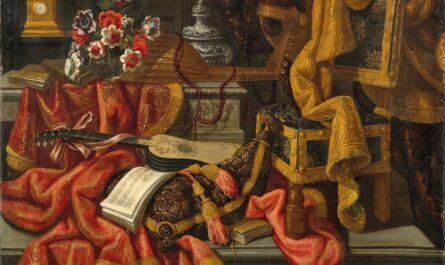Over the past seven months, I explored fourteen philosophy texts, each from a different thinker, across three periods of time. This project was inspired by Ralph Waldo Emerson’s The American Scholar address, and each title was chosen based on the books to which he would have had access himself. The project represented several goals for me; the challenge of taking on something new and novel; creating a system to progress through the texts quickly and effectively; maintaining a store of quotes, inspiration, and ideas to which I can refer back indefinitely; and lastly, being exposed to so many different perspectives and styles in a short span of time. This essay will detail how I addressed each point.

How and Why I Chose This Project
The first objective was to set an ambitious reading and writing goal for myself. I’d always enjoyed philosophy, had taken classes in high school and college, and hadn’t found much time since then to devote to studying. Philosophy texts require thinking and reflection, often needing weeks or months (or years!) to digest. As with all reading, your results are dependent upon your willingness to reflect and consider ideas and foreign possibilities. For me, the idea of reading fourteen titles in seven months, and writing about them was quite stretching. I did not set out to learn every detail of each text, rather I wanted to grasp and explore the key arguments and perspective presented by each title.
Of course, books are only as useful as the knowledge you take away from them. The scope of the project meant that I needed to finish each title in no more than two weeks, and write one article every week. This time constraint meant that my title choices, note taking system, and work flow would need to be efficient.
I chose and organized titles based on the year of publication, and made sure to only go so recent as the year of 1837, when Emerson’s address was given. The final book of my project, American Institutions and Their Influence, was published in 1835, with prior titles stretching back to Ancient Greece. Spanning from the Greeks, through the Romantic era, and into Modern philosophy, different perspectives come together to form threads of knowledge I enjoyed tracing through the eras. We can see how Plato influenced Kant, who influenced Hegel, with whom Schopenhauer so violently disagreed; we can see the foundations of modern politics beginning to taking shape.

Information Processing
Second, I learned to create a system for capturing information and taking notes reliably. Because this was a purely independent endeavor, I had total control over what to write about and explore from each title. I ultimately based my analysis on Emerson’s three schools of life: nature, books, and work. From there, I looked for insight into learning, relationships, leadership; three areas which most philosophy addresses whether directly or indirectly. This allowed me plenty of margin to play with, while maintaining a cohesion to the entire project. It also allowed me to have each article outlined much faster than approaching each text as a new endeavor.
Cumulatively, I’ve implemented new methods for screening texts, and “x-raying” books before reading them, extracting as much knowledge as possible which will serve me with any book going forward. This improved process has streamlined my information gathering and curating, and helped me to be able to write with a clearer purpose from the very first draft of an article. I am actually working on a separate post detailing that method which will be posted in the new year.

General Knowledge Store or My “Writing Brain”
Third, I laid a foundation of quotes, ideas, principles, and noteworthy writers and thinkers from which to draws inspiration. One key goal of this project was to introduce myself to ideas and perspectives I hadn’t considered in the light of Emerson’s American Scholar address. In this essay, he encourages the reader not to be romanticized by a life of libraries and studying, puffed up by their own knowledge and ego, but of no practical use in the real world. Instead, Emerson encourages us to go into the world to live, work, and have experiences which we then learn from and to which we apply our knowledge. Intellect and labor are not in competition with each other. Books and a successful life in the “real world” are not meant to be opposites, but rather to help shape and improve one other. This is another reason I chose to focus on the universal areas of learning, relationships, and leadership; all apply to both philosophy and the spirit of Emerson’s essay.

Foundations of Ideas We Know and Use Today
Finally, I read many foundational texts about principles which guide our daily lives:
- General economics, and the American system of capitalism from Wealth of Nations and American Institutions and Their Influence
- The naturalist argument through Rousseau’s Discourse on Inequality
- The practicality of stoicism in Marcus Aurelius’ Meditations
- Paradigm shifting in Kant of morality as an act of reason and Hume’s introduction of the scientific method to human understanding
- The principles of forming an argument in Aristotle’s Rhetoric, which I loved as a reader, and especially as a writer. It has become one of my references for structuring writing now, which is precisely the spirit of the project.
- The concept of existentialism introduced in Schopenhauer
- Basic democratic political theory in Mill and Plato.
I’ve enjoyed learning the basics of so many systems of thought, which I can now return to in depth, or utilize in exploring other related thinkers, as well. So much of philosophy is building off the work of a previous thinker, whether agreeing or disagreeing, it is helpful to know the basics of the earlier, foundational thinkers, in order to understand the arguments of later thinkers. Understanding the foundation laid by great minds, and the work collectively built upon it over the centuries helps to understand the political and social themes surrounding us today, and empowers us to make wise decisions for the future.
Have a very Merry Christmas, Happy Holidays, and a Happy New Year!





